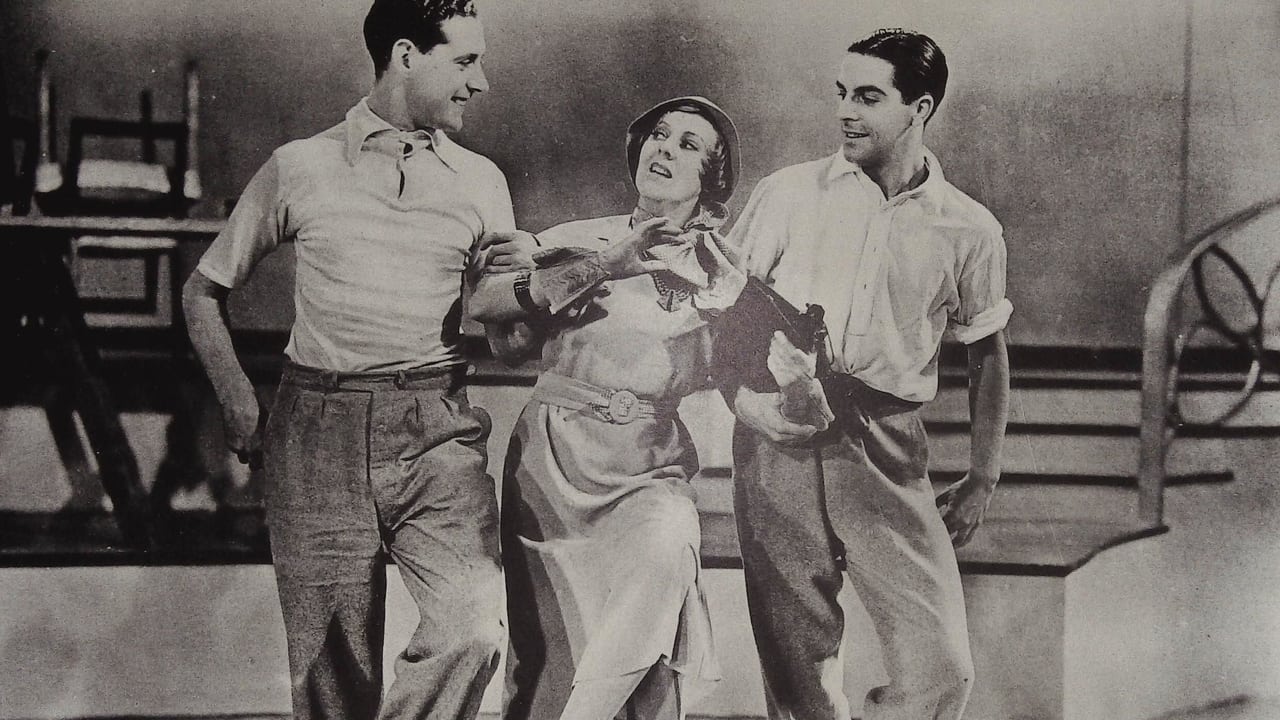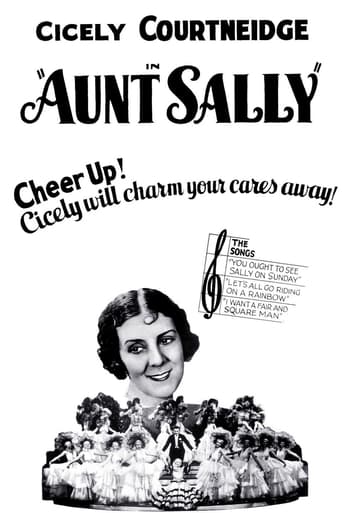Protraph
Lack of good storyline.
Robert Joyner
The plot isn't so bad, but the pace of storytelling is too slow which makes people bored. Certain moments are so obvious and unnecessary for the main plot. I would've fast-forwarded those moments if it was an online streaming. The ending looks like implying a sequel, not sure if this movie will get one
Darin
One of the film's great tricks is that, for a time, you think it will go down a rabbit hole of unrealistic glorification.
Yazmin
Close shines in drama with strong language, adult themes.
boblipton
Sam Hardy came from New York to London so he could run night clubs without gangsters muscling in on his business. The gangsters followed to muscle in. Then along came Sally in the person of Cicely Courtneidge to audition, for Hardy, only to be promptly tossed out.Promptly getting a job as Hardy's parlor maid, she reinvents herself as a French cabaret star and fascinates Mr. Hardy, who decides to star her.... until the gangsters decide to sabotage everything by kidnapping the chanteuse.The songs in this musical number have not aged well, but they are pretty good for the era, and Miss Courtneidge's mugging and serio-comic Apache dance will please people with a bent for such matters. I was particularly taken by the big production number, "You Ought to See Sally on Sunday." The huge variety of camera angles, including the overheading crane shots, suggest Busby Berkley, but it never loses itself in fantasy, despite the dizzying perspectives. It all clearly takes place within the generous confines of the night club space, even when optical printing offers multiple images. It's a nice variation never pursued in Hollywood.
malcolmgsw
A combination of some lively musical numbers with a berkleyesque flair and great art deco sets give this film a high level of entertainment which is usually missing from any film starring Cicely Cpurtneidge.The American director,Tim Whelan,manages to keep her mugging to a minimum.Although using just a night club set he manages to utilise a lot of very imaginative camera angles in staging the numbers.All of the numbers are very tuneful.
Spondonman
Cicely Courtneidge was married to Jack Hulbert from 1916 - 1978, the year of his death. If there was ever a match made in Heaven that was it - they were true soul-mates. Their effervescent outlooks on life were identical, along with their senses of humour, singing, dancing and acting talents. They both had a "talent to amuse", unfortunately public amusement has turned to the cynically and morally corrupt since their hey-days, meaning the type of humour they displayed in the '30's is now as antiquated to most people as the Battle of Hastings.The copy I taped off UK TV in 1991 was titled "Aunt Sally", the British title. The term doesn't have to mean "empty", just someone or something that is a target for criticisms (or missiles!). Which does make it an apt title, because this and most types of pre-1955 low to middle-brow family entertainment films are easy targets to the modern mockers. However, the film itself is a pretty poor showing for the target CC, most of the laughs coming from the show owner Sam Hardy's downbeat wisecracks, trying to keep ahead of the "American" gangsters pressuring him for protection money. But at least it boasts two of Cicely's most popular numbers, "If I had Napoleon's Hat" but more especially "Riding on a Rainbow" with a big production routine to complement it and a different recording from the commercial 78 release. To my eyes and ears she put in a fantastic performance, with bravura camera-work too. Billy Milton blasts out "You ought to see Sally on Sunday", in a performance that sounds live and with every word beautifully enunciated. And Leslie Holmes' turn with Debroy Somers and his Band was wonderful to behold.So a pleasant outing for Cicely, but if you're also a fan of British Dance Bands like me the film is worth watching - and listening to of course! - for its musical content alone.
F Gwynplaine MacIntyre
As a female comedian, Cicely Courtneidge's performing style was somewhere between those of Lucille Ball and Carol Burnett. Like both of them, Courtneidge tried to get laughs out of elaborate costumes, in her case involving ludicrous over-sized hats. As with Joan Davis (who was much funnier and far sexier), Courtneidge's comedy routines often involved dancing and slapstick. Her stage and film comedies always involved extremely contrived plot lines. Her career peaked at roughly the same time as Bea Lillie's, and these two performers were frequently compared. But in fact Bea Lillie's most famous routine -- the 'double dozen double damask dinner napkins' -- was originated by Cicely Courtneidge (which explains why Lillie never performed this routine in Britain). Courtneidge's usual sidekick in her antics was her husband Jack Hulbert, who complemented her in roughly the same way that Desi Arnaz backed Lucille Ball. Hulbert was dark, handsome, urbane, and made some attempt -- never successful -- to keep his wife's antics earthed in reality.Very late in her life, Cicely Courtneidge gave a deeply touching dramatic performance in 'The L-Shaped Room', as a wistful old lesbian from the variety halls. Regrettably, this one good performance was preceded by several decades of daft slapstick. It's not surprising that the Monty Python gang used Cicely Courtneidge's name to get a cheap laugh in one of their comedy routines.'Along Came Sally' lacks Jack Hulbert but is otherwise absolutely typical of Courtneidge's work. She plays Sally Bird, an Englishwoman who combines the worst traits of the characters played by Gracie Allen (she's brainless) and Lucille Ball (she's got the showbiz bug but is utterly untalented). Sally applies for a job in a London nightclub, only to discover that some American gangsters (with guns!) are trying to take over the joint. Of course, she decides to stop them. Somehow, this involves her pretending to be a French performer from the Folies Bergere, cried Mademoiselle Zaza. That name is funnier than anything else in this movie.The most interesting thing about 'Along Came Sally' is this film's depiction of American gangsters, with all the English stereotypical perceptions of such characters. The gangsters are played tolerably well by American actors, including Sam Hardy as the gang's leader. One of the henchgoons is well-played by Ben Welden, a semi-Edward Brophy character actor from America who got his start in British films before showing up at Warner Brothers. Less well-cast here is Hartley Power, an American character actor long resident in Britain, who usually played ineffectual roles. It doesn't much help that the American gangsters' dialogue is filled with Anglicisms. As 'Zaza', Courtneidge's attempts at a French accent are laughably bad without actually being funny. This entire movie bears an odd resemblance to the Groucho Marx/Carmen Miranda movie 'Copacabana', made a few years later.I'll rate 'Along Came Sally' 3 points out of 10, mostly because I'm a fan of 1930s comedy in general. This film is firmly in that mode, but not nearly up to the high comedic standards of that decade. For some reason, 'Along Came Sally' is listed on IMDb as 'Aunt Sally'. In Britain, an 'Aunt Sally' is any empty personality that exists for the sole purpose of being knocked down or ridiculed. Well, that description fits this movie.

